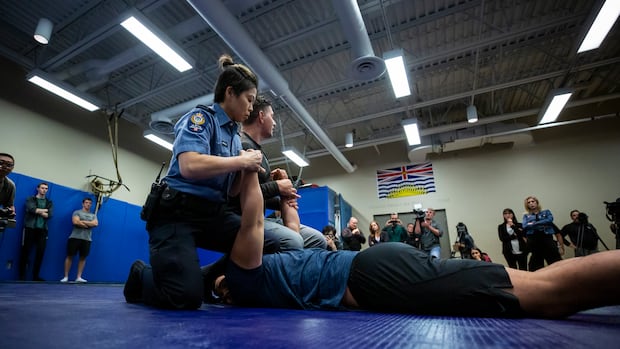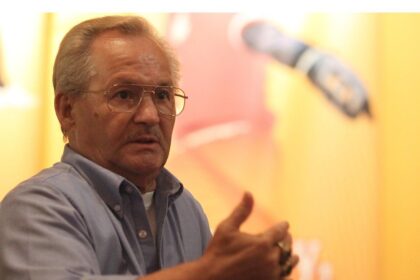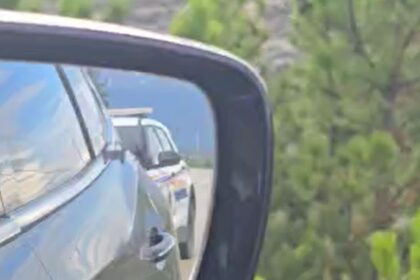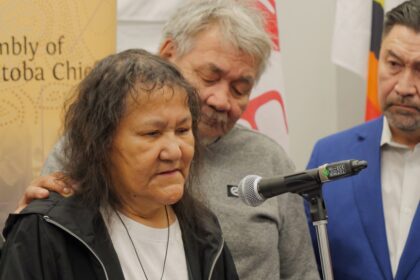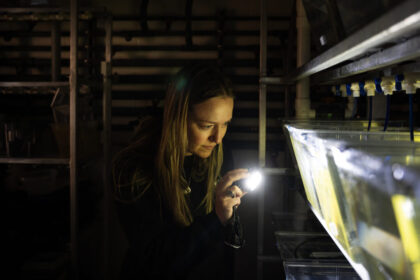British ColumbiaThe institution responsible for training municipal, transit and tribal police recruits in B.C. is pushing back against calls for city-run academies, arguing that a single, province-wide system is essential for consistent, accountable training. JIBC says centralized training ensures quality as VPD calls for its own training academyShaurya Kshatri · CBC News · Posted: Oct 12, 2025 5:44 PM EDT | Last Updated: 4 hours agoVPD officers demonstrate a training exercise during a media day for their force options training course at the VPD Tactical Training Centre in Vancouver, British Columbia on Friday June 28, 2019. (Ben Nelms/CBC) (Ben Nelms/CBC)The institution responsible for training municipal, transit and tribal police recruits in B.C. is pushing back against calls for city-run academies, arguing that a single, province-wide system is essential for consistent, accountable training.In a statement Friday, the Justice Institute of British Columbia (JIBC) says it remains “ready and equipped” to meet the province’s recruitment needs, following recent criticism from Vancouver’s police chief and police board chair. Both the chief and board chair told CBC News that rising overtime costs at the Vancouver Police Department (VPD) are being driven by a lack of training space at the institute. Through a Freedom of Information request, CBC News found VPD overtime spending rose from $26 million in 2022 to $39 million in 2024 — a 50 per cent increase.Police Chief Steve Rai and board chair Frank Chong said the shortage of training capacity has left “dozens and dozens” of recruits waiting for academy seats, forcing existing officers to work more hours to meet staffing needs.The VPD is seeking approval from the province to establish and operate its own training academy.”We have been very, very clear with the Justice Institute that we need the proper amount of officers trained and we are not getting that,” Chong told CBC News last week. “We are at a breaking point.”On Friday, Minister for Public Safety and Solicitor General Nina Krieger acknowledged those concerns at a press conference announcing a 50 per cent expansion to police-academy training at the Justice Institute, increasing the academy’s annual training capacity from 192 seats to 288. The JIBC plans to increase the number of recruits per year, from 288 to 432 by May 2026.Frank Chong, chair of the Vancouver Police Board, at VPD offices in Vancouver, B.C., on Oct. 31, 2024. (Ben Nelms/CBC)The province has earmarked $4 million for the school’s expansion, which will pay for more instructors, new training gear and “dedicated spaces to accommodate the increased number of police recruits.”In an email to CBC News, Rai said the increase in seats is a step in the right direction, but still falls short of meeting the force’s operational needs. “The VPD is uniquely positioned to train its own recruits, ensuring we meet workforce demands that are unique to Vancouver (i.e. FIFA 2026), while easing the burden on the existing academy infrastructure.”WATCH | VPD officers paid thousands in overtime in 2024:47 VPD officers made over $100K in OT last year — and one banked $239K, FOI data showsA CBC investigation has found more and more VPD officers are raking in the overtime pay. A growing number are making at least $100,000 in double-time, in some cases their entire base salary or more. As Liam Britten reports, it has some critics asking about accountability and officer wellness.But the JIBC says a single, centralized model is key to maintaining public confidence and consistent standards across municipal forces.“A decentralized approach would create oversight challenges, stretch instructor capacity, and weaken the province-wide standards that keep both officers and the public safe,” April van Ert, the institute’s vice-president of communications and engagement, said in a statement.According to the JIBC, every recruit completes a rigorous 10-month program that includes field placements and scenario-based learning focused on de-escalation, trauma-informed practice and cultural safety.Van Ert said fragmented training models risk duplicating costs and straining instructor resources.She said the JIBC is disappointed by recent comments from the VPD, stating they “do not reflect the strong and ongoing collaboration that has long existed between our organizations.” “[The] JIBC is very confident in its ability to meet demand,” said van Ert.Surrey councillor calls for local police training centreMeanwhile, Surrey city councillor Linda Annis, who is also a mayoral candidate, is calling for an entirely new training centre that could serve departments across the Lower Mainland.”We need to be looking at building a new centre of excellence for police training, and I think it should be right here in Surrey, because we have the land,” Annis told CBC News Sunday.Surrey city councillor Linda Annis says the province’s expansion “is to be applauded, but it is not enough,” and is calling for a new regional training centre based in Surrey to serve forces across the Lower Mainland (CBC)Annis added that Surrey has roughly 800 police officers compared to about 1,400 in Vancouver despite comparable populations.She said the Surrey Police Service is “feeling very stretched,” and that the force is worried about being able to properly train new recruits.”You can just do that math and know that there’s not going to be enough police officers here,” she said.Krieger has said her ministry will look at different departments’ needs, but stressed the JIBC is “central” to police training in British Columbia.ABOUT THE AUTHORShaurya Kshatri is a web writer and reporter at CBC News Vancouver. You can reach him at shaurya.kshatri@cbc.caWith files from Liam Britten, Cory Correia and Kier Junos
B.C. police academy pushes back on calls for city-run police training amid officer shortage
